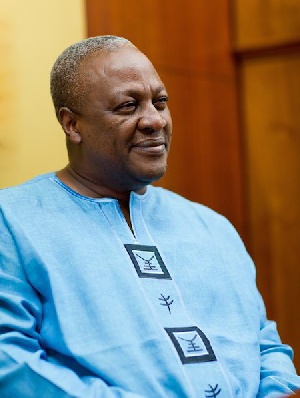Business News of Monday, 29 September 2014
Source: BFT
IMF bailout only temporary relief
The country’s imminent programme with the International Monetary Fund (IMF) will only provide temporary relief from the challenges plaguing the economy, Dr. Lord Mensah, Senior Lecturer at the University of Ghana Business School, has said.
According to him, “The IMF programme won’t necessarily solve our problems in the long-run, but in the interim will serve as a check on managers of the economy”.
Dr. Mensah, speaking at the B&FT Roundtable Discussion on Implications of the IMF Bailout, said managers of the economy must be prepared to look beyond an IMF bailout to be enabled to achieve the long-term fiscal discipline it has always wanted.
Ghana is expected to begin an IMF programme early next year following talks with the Bretton-Woods institution which ended last week.
President John Mahama addressing some Heads of state in New York last week said not only is government seeking an IMF programme to stabilise the macroeconomic environment, but also undertaking a strong programme of institutional reforms “in order that we create a sustainable base for the macro economy to be sustainable over time”.
But speaking at the Roundtable Discussion, Sydney Casely-Hayford, an economic analyst, said the macroeconomic stability being sought by government will not be achievable if it is not able to institutionalise a strong fiscal regime.
He said the homegrown policies introduced by the Finance Ministry to achieve stability in the economy will achieve maximum results if government is strong willed in implementing it to the letter.
“Those homegrown policies are excellent, and they were supposed to help us fix the medium to long-term structure of the economy. But the problem is I don’t see government’s sincerity in implementing these policies because there is too much partisan politics and corruption to carry through these homegrown policies,” he added.
The event, organised by the BIA Conferences with support from Dalex Finance, was attended by economic analysts and stakeholders in the financial services sector.
Kenneth Kwamina Thompson, CEO of Dalex Finance -- also commenting on the implications of the impending bailout --said the country’s large fiscal deficit and challenges pertaining to the worsening local currency will persist if the economic fundamentals are not addressed.
He linked the economy’s well being to the direct performance of the local currency, which depreciated by more than 30 percent within the first half of this year alone.
“Let us stabilise the cedi at the right level whether it is ten cedis to a dollar, or five cedis to a dollar so at least we know where it is; that’s all the private sector wants. It’s not going to be easy and we just have to embrace the pain,” he said.
Despite completing a US$600milllion three-year IMF programme only in 2012, a large fiscal deficit and weakening currency among other challenges have forced the country to seek assistance from the Bretton-Woods institution to ensure stability.
For the first eight months of the year, the cedi depreciated against the US dollar by about 30 percent as per Bank of Ghana data -- while other economists have pegged the rate of depreciation at 40%, pushing the country to a point where it needed the IMF’s help to stabilise the currency, boost confidence in government’s policies and accelerate the journey to restore economic stability.
Negotiations on a possible programme between IMF officials and government on how the Fund can help resolve the country’s economic problems ended last week.
Further talks are expected between the two parties at the annual general meetings of the World Bank and IMF in Washington DC in October.











